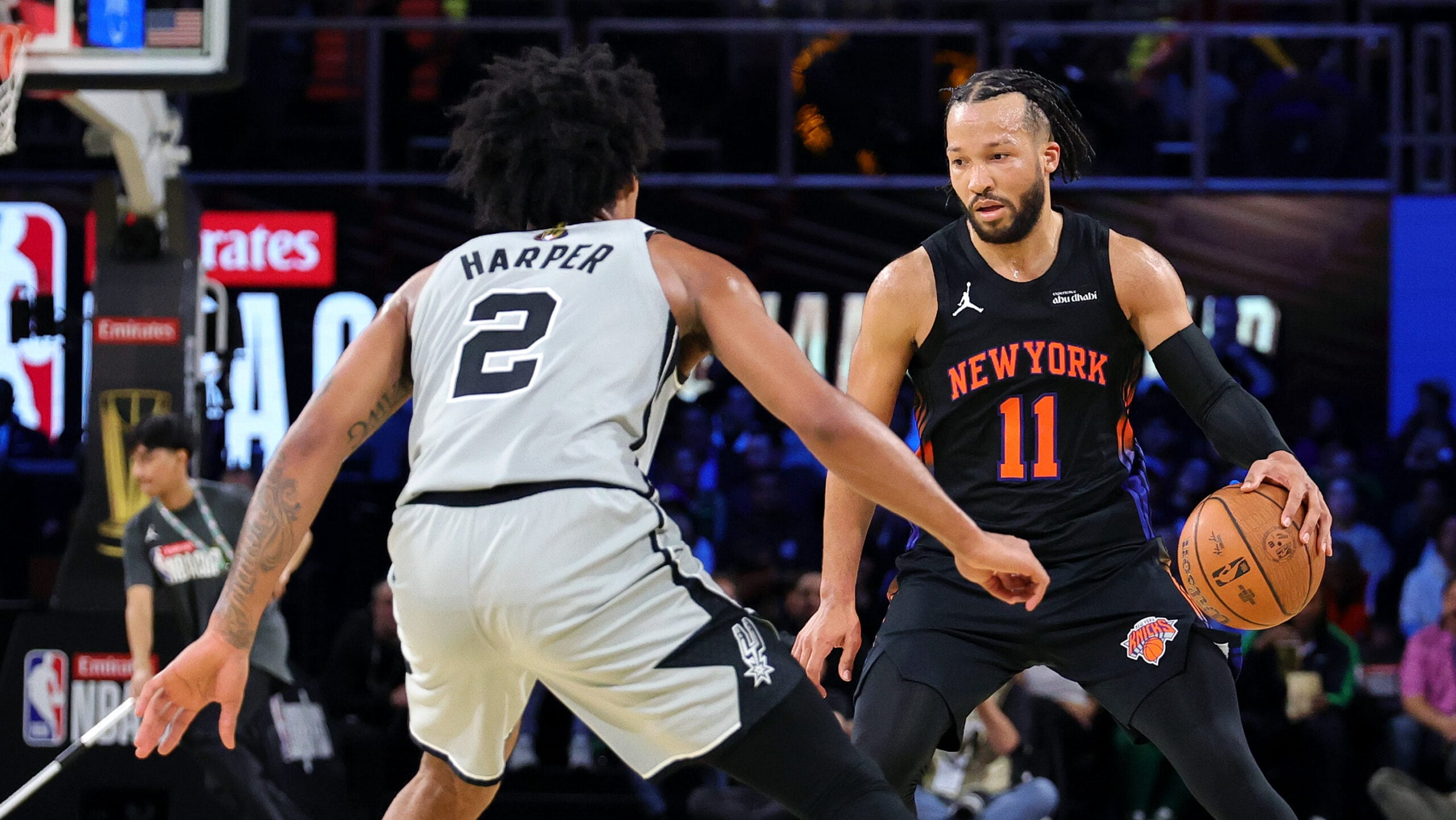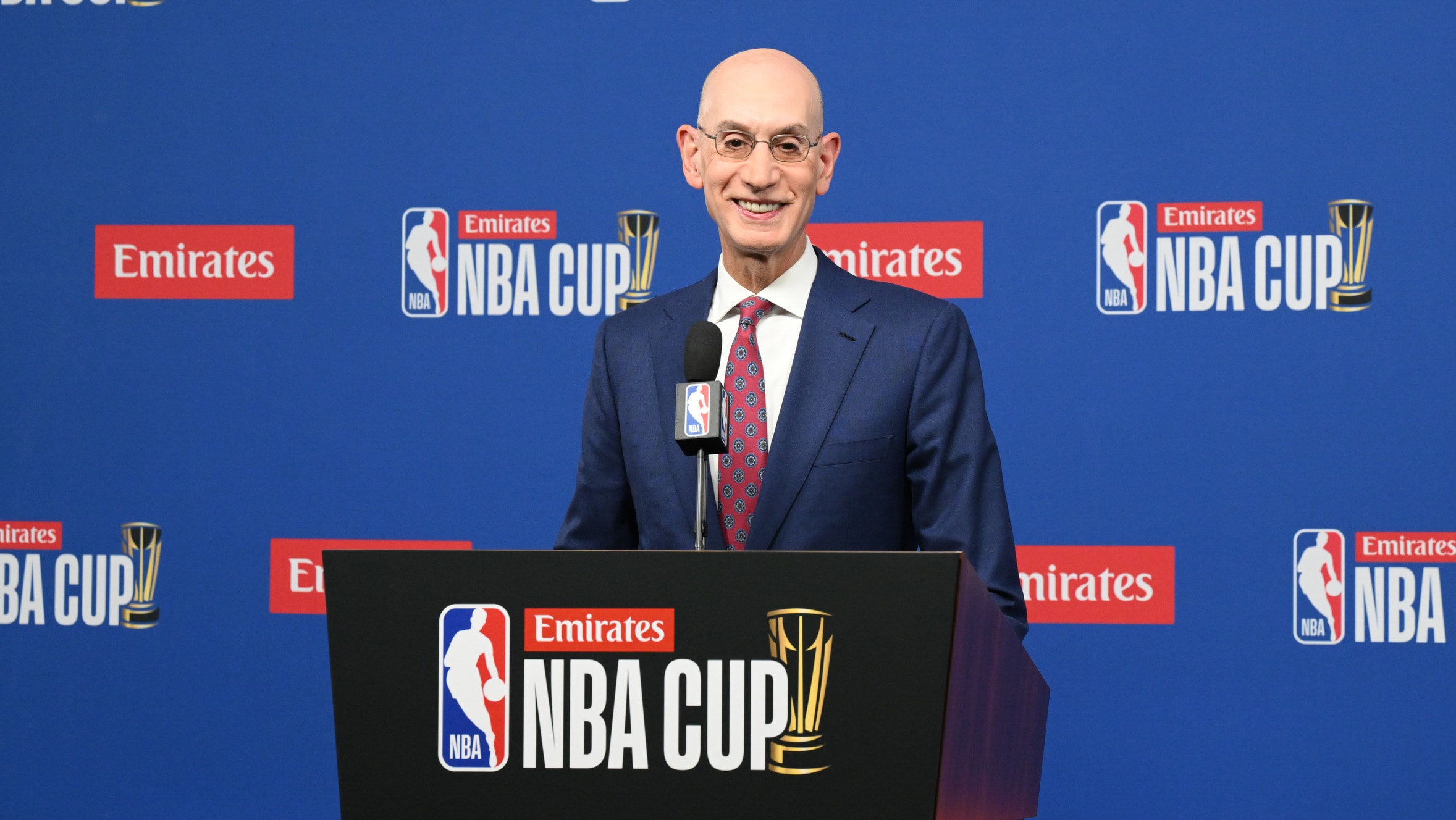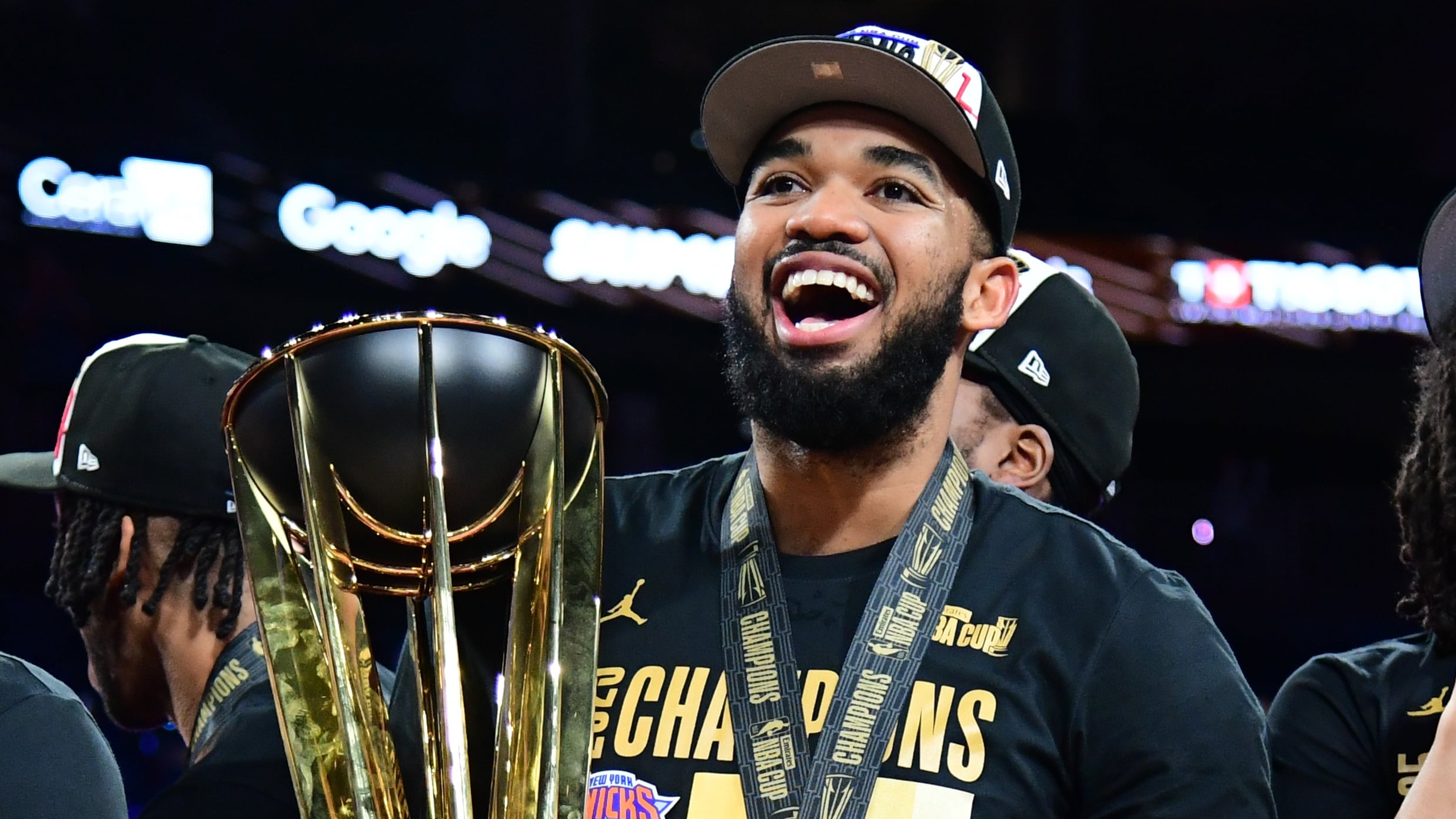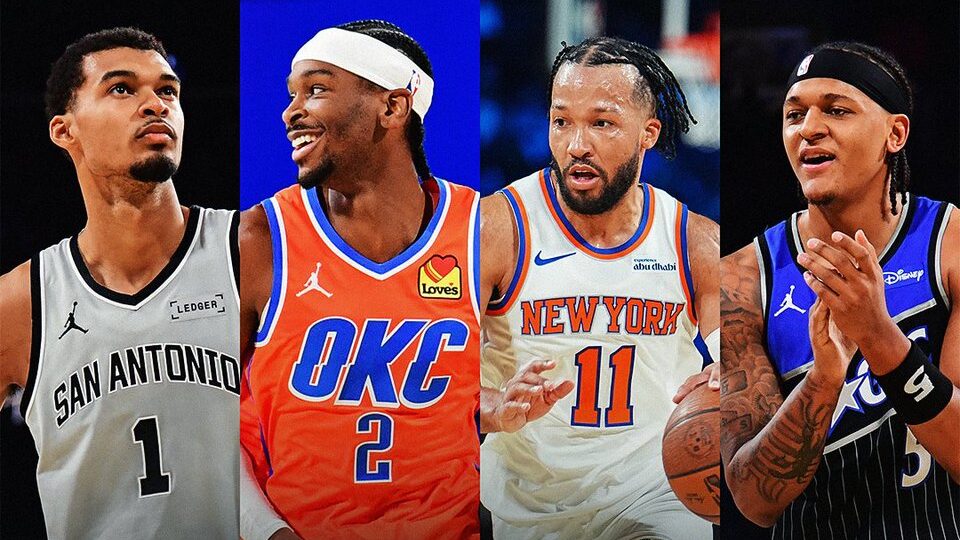
* Tonight on TNT: Game 3, Sixers vs. Nets (8 ET)
The first round series between the Philadelphia 76ers and Brooklyn Nets has been the best offensive series of the postseason so far, with the two teams having combined to score 118 points per 100 possessions.
Through Wednesday, the Sixers rank first in postseason efficiency (121.1 points scored per 100 possessions) and the Nets rank fifth (114.7). In regard to playoffs vs. regular season, Philadelphia has had the most improved offense (having scored 9.6 more per 100 than they did in the regular season) and Brooklyn has had the second most improved offense (5.9 more).
That means that the defense has not been good and begs this question for the Nets and Sixers: How do we get a stop?
Nets need rebounding work
On the Sixers’ initial possessions, the Nets have allowed less than a point per trip down the floor (203 on 204). But a possession does not end with a missed shot and Brooklyn has struggled to complete its defensive possessions with a rebound. The Sixers lead the playoffs in offensive rebounding percentage by a wide margin, having grabbed more than 40 percent of available offensive boards.
In the series, the Sixers have compiled 44 second-chance points, 11 more than any other team has through two games. In their 51-point third quarter in Game 2, they only missed seven shots, but they rebounded five of them which they turned into 10 second-chance points.
Nine different Sixers have grabbed at least one offensive rebound, with Ben Simmons (eight), Jimmy Butler (seven) and Joel Embiid (seven) leading the way. Boban Marjanovic has three offensive boards, but his ability to get his hands on the ball led to three more.
That leads to Brooklyn’s main issue: the Sixers are simply bigger and stronger than it is. Philadelphia’s size advantage starts with Embiid, who has overpowered Jarrett Allen. In Allen’s 33 minutes this series, the Sixers have as many offensive rebounds (13) as the Nets have defensive rebounds (13).
Of course, that’s less than half of the offensive boards that the Sixers have grabbed in this series. (They didn’t have any offensive rebounds in the 10:05 of Game 2 garbage time, by the way.) Six of Philadelphia’s 31 offensive boards can be chalked up to Embiid or Marjanovic being stronger or taller than Allen. The others have been a result of other Nets failing to contain a ball-handler, failing to box out, or simply getting beat to the ball.
This is not a new problem for Brooklyn. In the regular season, the Nets ranked 23rd in defensive rebounding percentage, lowest among the 16 playoff teams. The Sixers only ranked 11th in offensive rebounding percentage, but given the size discrepancy, both at center and with whomever is guarding Ben Simmons, this is not a good rebounding matchup for the Nets.
Sixers must fight through screens
The Nets have outscored the Sixers, 78-36, from 3-point range. Brooklyn is 26-for-62 (42 percent) on 3-pointers, with its 26 3-pointers tied for the second most in the postseason and its 42-percent shooting ranking third.
Interestingly, the Nets have shot much better on pull-up 3-pointers (16-for-27, which is more pull-up 3-pointers than the Houston Rockets have) than they have on catch-and-shoot 3-pointers (10-for-34). Five of those 16 off-the-dribble 3s (three from Theo Pinson and two from Shabazz Napier) were in that 10:05 of Game 2 garbage time. Spencer Dinwiddie, D’Angelo Russell and Caris LeVert have combined to shoot 9-for-20 on pull-ups, too.
The Sixers’ pick-and-roll defense, with their bigs hanging back in the paint, is the main issue here…

The Nets defend pick-and-rolls the same way, but the Sixers don’t run nearly as many pick-and-rolls and their primary ball-handler can’t shoot outside of 10 feet. While Brooklyn ranked third in pull-up 3-pointers in the regular season, Philadelphia ranked 29th.
Dropping the big in pick-and-rolls puts the onus on the ball-handler’s defender to not get caught in the screen. And the Sixers turned things up defensively in the second half of Game 2. Prior to those last 10 minutes of garbage time, Brooklyn didn’t make a single second-half 3-pointer on Monday. The Nets missed some open catch-and-shoot looks, but, with the exception of a Dinwiddie miss (when Mike Scott was the culprit) after the Sixers had already gone up 18, their ball-handlers weren’t allowed to comfortably step in to pull-up attempts.
Philadelphia’s defenders (Simmons in particular) did a better job of either preventing the pick-and-roll from happening (by getting in between the ball-handler and the screener) or getting over the screen with minimal contact.
The Sixers still need to do a better job of keeping Dinwiddie from getting downhill. Through two games, he has as many points in the restricted area (16 on 8-for-11 shooting) as Embiid (8-for-12).
On the flip side, limiting Joe Harris to just five catch-and-shoot 3-points attempts in two games is a good thing for the Philly defense. (J.J. Redick is an identical 2-for-5 on catch-and-shoot threes, by the way.)
The Sixers seem to be in better shape. Their offensive rebounding is more sustainable than the Nets’ shooting off the dribble and they played better defense in the second half of Game 2. They’re also just bigger and more talented than the Nets.
As the series moves to Brooklyn for Games 3 and 4, Embiid remains less than 100 percent and the Nets should have Jared Dudley (who was a plus-16 in Game 1) back from a one-game absence.
* * *
John Schuhmann is a senior stats analyst for NBA.com. You can e-mail him here, find his archive here and follow him on Twitter.
The views on this page do not necessarily reflect the views of the NBA, its clubs or Turner Broadcasting.










